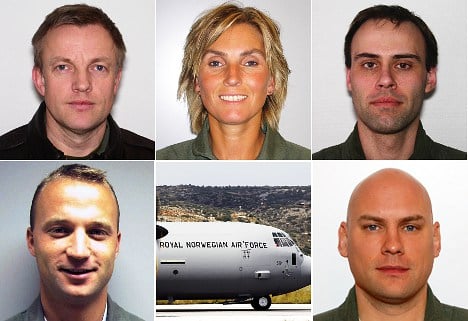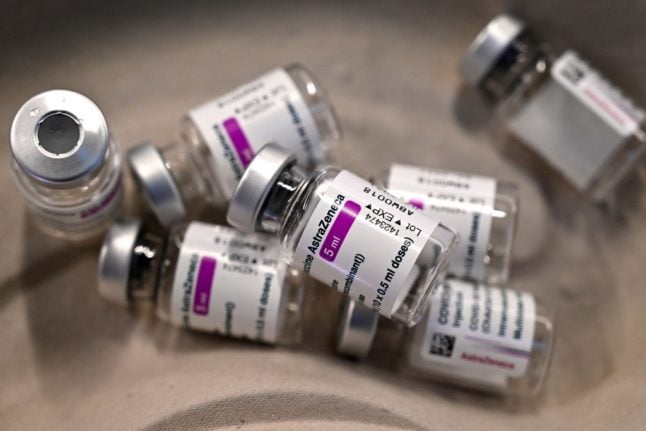Search and rescue dogs were deployed in the area around the mountain located in the far north of Sweden as the search for the bodies of the five passengers on board continues.
“We will fly the dogs up this morning,” Börje Öhman at Norrbotten police said early on Sunday.
The work is being conducted in consultation with the Swedish Accident Investigation Authority (SHK) and Börje Öhman was unable to state how long the search would continue.
“A few days has to have passed before we get an understanding of the situation The finds are in an avalanche, so there could be a lot of snow both on the aircraft parts and people,” he said.
The police are counting on a lengthy operation and one of the risks they face is the danger of avalanche.
“It is something that you always take into account in this work, we have staff with alpine skills that make that assessment. We have to so that staff are not exposed to risk.”
The body parts found on Saturday by rescue teams have been transported to Kiruna hospital.
“They will then be taken later to Umeå with the help of a funeral director. Once there, an identification will be carried out at the Forensic Medicine Unit,” Börje Öhman said.
“The handling of the body parts must be carried out with as much dignity as possible,” he said, adding that any further finds will be taken to Kiruna hospital during the course of the day.
Some 20 police officers have been deployed, together with avalanche dogs, to search for the remains of the five passengers in the place on Sunday.
“The bodies are under the snow. Some of the parts found on Saturday were found relatively shallow, below the snow surface,” Börje Öhman said.
Öhman was unable to answer questions as to how the remains of the plane will be taken care of.
The head of the Norwegian Hercules fleet, Lieutenant Colonel Trond Solna, said the pilots were probably flying without autopilot and that this may have been one of the causes of the accident.
“The plan was that they would use the opportunity to fly tactically if the weather permitted it,” Solna said to the Norwegian Aftenposten daily.
Flying tactically means to fly at lower altitudes, along the contours of the landscape, often without autopilot.
On Sunday afternoon, the search and rescue services said they had located the parts of the craft that housed the plane’s two so called black boxes.
The hope is that the investigation of these may be able to provide some more details as to what caused the plane to crash.



 Please whitelist us to continue reading.
Please whitelist us to continue reading.
Member comments